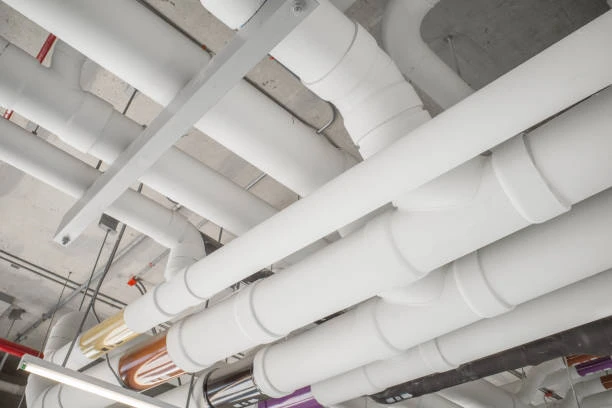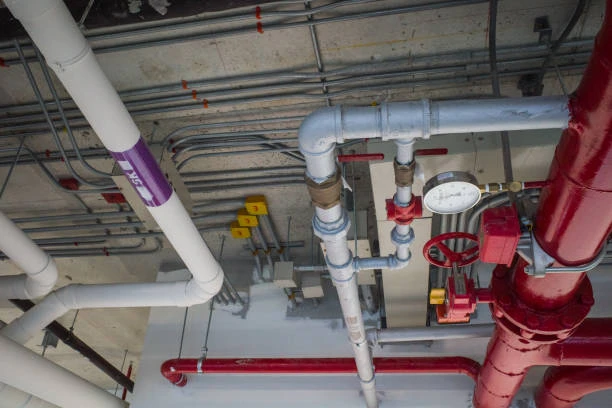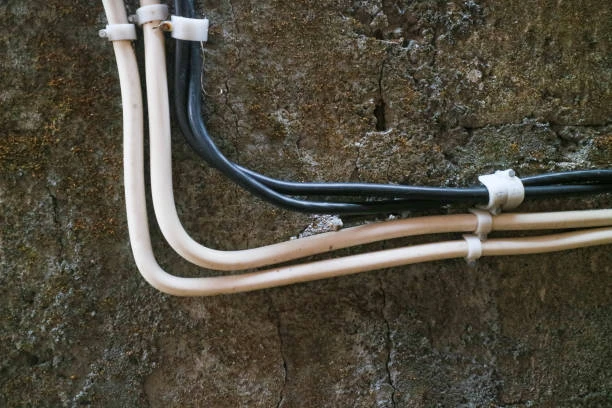Water-Saving Role of Copper Ball Valves in Agricultural Irrigation
Copper ball valves, including radiator valve variants, play a crucial role in agricultural irrigation systems by providing precise water flow control, durability, and water-saving efficiency. These valves help farmers optimize water usage, reduce waste, and maintain reliable irrigation networks in challenging outdoor conditions. In this article, we explore the water-saving benefits of copper ball valves, their applications in agriculture, and how to select the best radiator valve for your irrigation needs. We also provide a comparison with plastic valves, installation tips, and details about IFAN’s high-quality products that meet international standards.
Frequently Asked Questions About Copper Ball Valves
1. What is a copper ball valve?
A copper ball valve is a shut-off valve with a perforated ball that rotates to control water or gas flow in a piping system.
2. Why are radiator valves made of copper used in agricultural irrigation?
Copper radiator valves offer corrosion resistance, durability, and precise control, helping conserve water in irrigation systems.
3. Are all copper ball valves suitable for irrigation systems?
Not all are optimized for irrigation; choose valves designed for water control and outdoor conditions.
4. How do I choose a high-quality radiator valve?
Look for pure copper valves with certifications like ISO and manufactured by trusted brands like IFAN.
5. Are copper valves better than plastic valves for agricultural irrigation?
Yes, copper valves are more durable and reliable, while plastic valves may degrade faster in harsh outdoor environments.
Definition and Features of Copper Ball Valves
Copper ball valves consist of a hollow, perforated ball within a copper body that regulates water or gas flow. A quarter-turn of the handle opens or closes the valve, allowing for quick and precise control. Copper’s natural properties, such as corrosion resistance and high durability, make these valves ideal for agricultural irrigation systems exposed to moisture, soil, and weather changes. They withstand high pressures and maintain tight seals, preventing water leaks and waste.
Radiator valve models within the copper ball valve family are designed for precise flow regulation, enabling farmers to adjust water distribution to specific crops or zones. Their smooth internal surfaces minimize friction, ensuring efficient water flow and reducing energy costs for pump-driven systems. Copper’s ability to resist rust and degradation ensures long-term reliability, making these valves a key component in water-saving irrigation setups.
Common Uses and Industries for Copper Ball Valves
Copper ball valves, including radiator valve variants, are widely used in agricultural irrigation due to their water-saving capabilities and robustness. Common applications include:
Drip Irrigation: Control water delivery to individual plants, minimizing evaporation and runoff.
Sprinkler Systems: Regulate water flow to sprinklers for even distribution across large fields.
Greenhouse Irrigation: Manage water supply to hydroponic or soil-based systems for precise crop hydration.
Farm Water Networks: Control flow in main pipelines supplying water to multiple irrigation zones.
Livestock Watering Systems: Ensure reliable water delivery to drinking troughs with minimal waste.
Radiator valves excel in applications requiring fine-tuned water control, such as adjusting flow to match crop needs or seasonal changes. Their durability and leak-proof design make them a preferred choice for farmers aiming to conserve water and reduce operational costs.
Guide to Selecting Copper Ball Valves
Choosing the right copper ball valve, especially a radiator valve, ensures optimal water-saving performance in agricultural irrigation. Consider these factors when selecting:
Material Quality: Choose valves made from high-purity copper or quality alloys for corrosion resistance and longevity.
Finish and Appearance: A polished copper finish indicates high manufacturing standards and resistance to environmental wear.
Certifications: Select valves that comply with standards like ISO 15874 or ASTM F2389 for quality assurance.
Flow Control Capability: Ensure the valve supports precise adjustments for water-saving irrigation needs.
Brand Reputation: Trust manufacturers like IFAN, known for reliable and cost-effective valves.
Consult an irrigation specialist to match the valve’s specifications with your system’s requirements, ensuring efficient water use and system durability.
Installation Tips for Copper Ball Valves
Proper installation of copper ball valves, including radiator valve models, ensures water-saving performance and prevents leaks in irrigation systems. Follow these tips for a successful setup:
Check Compatibility: Confirm the valve suits the pipe material (copper, PVC, or PEX) and irrigation system specifications.
Clean Pipes: Remove dirt, debris, or sediment from pipes before installation to avoid clogs or valve damage.
Use Proper Sealants: Apply Teflon tape or thread sealant to threaded connections for a secure, leak-proof seal.
Align Correctly: Install the valve in the correct orientation, following the manufacturer’s flow direction indicators.
Test the System: Run a water test after installation to check for leaks and ensure precise flow control.
Avoid over-tightening the valve during installation to prevent damage to the threads or body, especially in systems exposed to outdoor conditions. Regularly inspect valves for wear to maintain water-saving efficiency.
Comparison: Copper Valves vs. Plastic Valves
Feature | Copper Valves | Plastic Valves |
|---|---|---|
Durability | High, lasts decades | Moderate, may degrade |
Corrosion Resistance | Excellent against moisture | Good, but less effective |
Pressure Tolerance | Handles high pressure | Suitable for low pressure |
Temperature Tolerance | Withstands high temperatures | Limited to low temperatures |
Cost | Higher initial cost | Lower initial cost |
Applications | Agricultural irrigation, industrial | Residential, light irrigation |
Copper valves, particularly radiator valve models, outperform plastic valves in agricultural irrigation due to their durability, corrosion resistance, and ability to support water-saving precision.
Conclusion
Copper ball valves, including radiator valve variants, play a vital role in agricultural irrigation by enabling precise water control and minimizing waste. Their corrosion resistance, durability, and efficient flow regulation make them ideal for drip, sprinkler, and greenhouse systems. By choosing high-quality valves from trusted manufacturers like IFAN, farmers can optimize water usage, reduce costs, and ensure long-term system reliability. Whether you’re managing a small farm or a large agricultural operation, copper ball valves deliver the performance needed for sustainable irrigation. Follow the installation tips and select products that meet international standards to maximize your system’s water-saving potential.
Connect with IFAN
IFAN is a Chinese manufacturer of plastic pipes, fittings, and valves with 30 years of experience. If you are interested in IFAN copper fittings, copper valves, plastic pipes, and fittings, please contact us. IFAN offers you a variety of standard pipes to meet your specific needs. Click below to learn more about IFAN’s wide range of affordable and cost-effective valve products and piping system-related products.
We will reply to your email or fax within 24 hours.
You can call us at any time if there is any question about our production.
For more information,pls visit our webside https://waterpipefitting.com/
Pls Mailto: [email protected]
Whatsapp: +86 15088288323
IFAN Products International Standards
IFAN products strictly adhere to a comprehensive range of international standards, encompassing ISO 15874, EN 15874, ASTM F2389, DIN 8077/8078, GB/T 18742, NBR 15884, ISO 15494, EN ISO 15494, GB/T 19472, NBR 15494, ASTM 2846 (501), DIN 8079/8080 (502), ASTM F441/F441M SCH80 (503), DIN (504), DIN (505), GB/T 18993, AS/NZS 1477, CSA B137.6, NSF/ANSI 14, TIS 17-2532/1131-2535, BS 3505, BS 4346 (801), ASTM D1785 SCH40 (802), ASTM D1785 SCH80 (803), DIN (804), GB (805), GB (806), GB(901), DWV(902), ASTM D2665 (903), along with ASTM D2241, D2665, D2729, and F441/F441M series, ISO 1452, EN ISO 1452, DIN 8061/8062, GB/T 10002, AS/NZS 1477, JIS K6741, CSA B137.3, and other national and industry norms.














Recent Comments